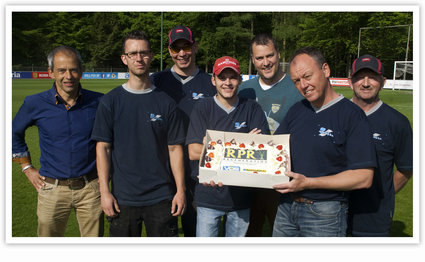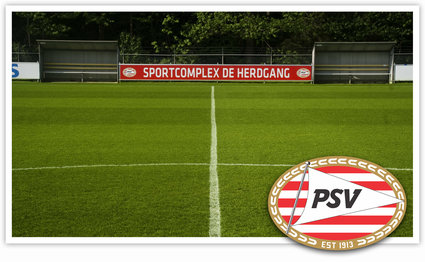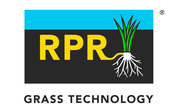The secret of champion PSV’s top pitches
The basis for top football lies in the pitch. The Dutch PSV football club’s championship is firmly rooted in its perfect training pitches of De Herdgang and the fantastic pitch in the Philips stadium. An excellent reason for a visit to field manager Ed Hubers and his colleagues to offer them a well-earned championship cake.
 Thinking, daring, doing
Thinking, daring, doing
“Thinking, daring, doing,” is how PSV’s grass experts describe their work. This philosophy has enabled them to once again ensure a season of pitches of top quality. The secret weapon of field manager Ed Hubers and his colleagues is their passion. And that passion combined with the ultra-strong RPR is a marriage made in heaven.
Passion for grass
Ed Hubers: “One of the best things about our work is that no two days are the same; each new day brings us new tasks. Sometimes that may be frustrating, but we are always terribly proud of our results in the end. Some people think that grass simply grows on its own accord, but we actually have to work on its upkeep using the right methods every single day. That calls for a lot of passion, and passion is precisely what we all have in common here.”
 Training pitches the basis for success
Training pitches the basis for success
The De Herdgang training pitches are used six days a week for 45 weeks each season. That can only be done with grass with an excellent wear resistance. And that’s where RPR comes in. If you want to become champions you have to train at top level, on perfect grass. “It’s obvious to us that the RPR grass plants are incredibly strong. The pitch suffers little damage, and even if it is damaged, it will recover very quickly. The quality of the training pitches is and remains excellent, in spite of the pitches’ intensive use. There’s a small plot of artificial grass among the De Herdgang pitches, but the professional players never use it. They much prefer the Dutch natural grass,” says field manager Ed Hubers.
Replacement of stadium sward
The sward in the Philips stadium is replaced every year, after being totally ruined by concerts. “There’ll be a concert there this year, too, and we’ll have to create a new sward. We’ll have four weeks’ time to get the sward into top condition. We’ll have no problems achieving that again with RPR. It took us some time to work out the best fertiliser doses and irrigation schedule for the RPR grass in relation to traditional grass mixtures, but we’ve now found the perfect balance. I’m certain that the right fertilisation also helps to decrease the risk of the players slipping on the grass.”
The determinate stolons in RPR create a natural network, a kind of netting in the sward, resulting in pitches that are as strong as iron and have excellent wear tolerance. RPR greatly reduces the risk of the grass being kicked up from the soil, and so minimises damage to the pitch. And if the sward should be damaged after all, RPR’s self-regenerating capacity will quickly restore it. RPR is very suitable for both seeding and overseeding.
Click here for more about RPR.



